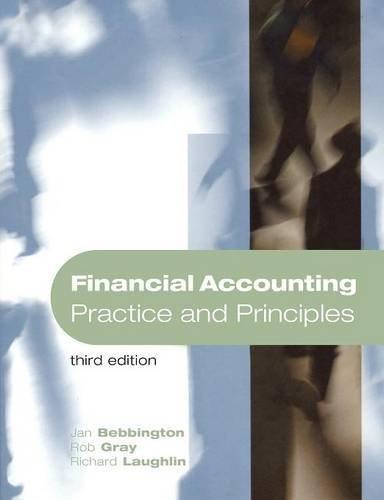Question
10#1 Motors manufactures specialty tractors. It has two divisions: a Tractor Division and a Tire Division. The Tractor Division can use the tires produced by
10#1
Motors manufactures specialty tractors. It has two divisions: a Tractor Division and a Tire Division. The Tractor Division can use the tires produced by the Tire Division. The market price per tire is
$75.
The Tire Division has the following costs per tire:
LOADING...
(Click the icon to view the costs and additional information.)Read the requirements
LOADING...
.
Requirement 1. Assume that the Tire Division has excess capacity, meaning that it can produce tires for the Tractor Division without giving up any of its current tire sales to outsiders. If
Germain
Motors has a negotiated transfer price policy, what is the lowest acceptable transfer price? What is the highest acceptable transfer price? (Assume the
$4
includes only the variable portion of conversion costs.)
| The lowest acceptable transfer price is |
| , the Tire Division's |
| . |
| The highest acceptable transfer price is |
| , the Tire Division's |
| . |
Requirement 2. If
Germain
Motors has a cost-plus transfer price policy of full absorption cost plus
25%,
what would the transfer price be? (Assume the
$4
includes only the variable portion of conversion costs.)
Begin by selecting the formula to compute the transfer price under this strategy.
|
| = | Cost-plus transfer price |
| If Germain Motors has a cost-plus transfer price policy of full absorption cost plus 25%, the transfer price would be |
| . |
Requirement 3. If the Tire Division is currently producing at capacity (meaning that it is selling every single tire it has the capacity to produce), what would likely be the fairest transfer price strategy to use? What would be the transfer price in this case?
| When a company is producing and selling at its capacity, the fairest transfer price strategy to use is the |
| ||
| strategy. In this case, the transfer price would be |
| . | |
More info
Dialog content starts
| Direct material cost per tire $27 | |
| Conversion costs per tire $4 (Assume the$4 includes only the variable portion of conversion costs.) |
Fixed manufacturing overhead cost for the year is expected to total
$40,000.
The Tire Division expects to manufacture
40,000
tires this year. The fixed manufacturing overhead per tire is
$1
($40,000
divided by
40,000
tires).
Step by Step Solution
There are 3 Steps involved in it
Step: 1

Get Instant Access to Expert-Tailored Solutions
See step-by-step solutions with expert insights and AI powered tools for academic success
Step: 2

Step: 3

Ace Your Homework with AI
Get the answers you need in no time with our AI-driven, step-by-step assistance
Get Started


